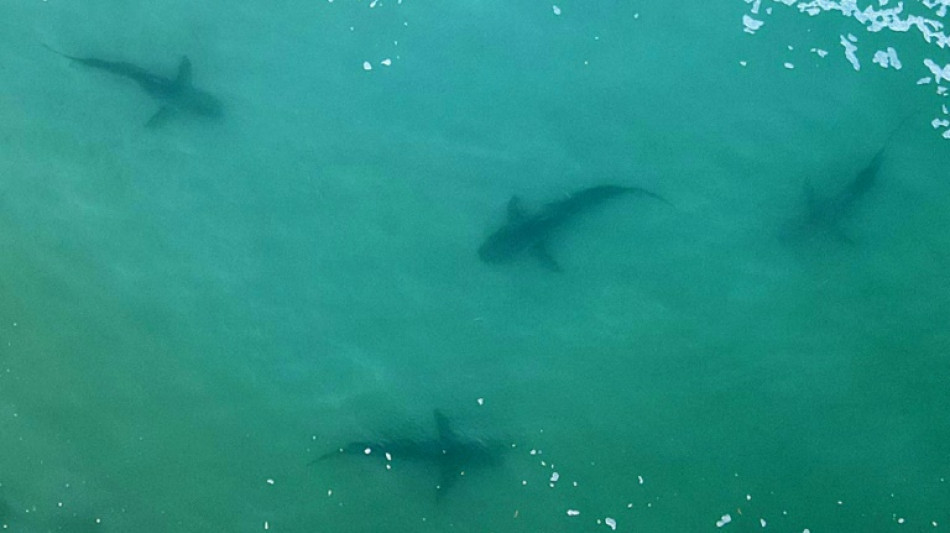
SCS
0.0200


Nearly two thirds of the sharks and rays that live among the world's corals are threatened with extinction, according to new research published Tuesday, with a warning this could further imperil precious reefs.
Coral reefs, which harbour at least a quarter of all marine animals and plants, are gravely menaced by an array of human threats, including overfishing, pollution and climate change.
Shark and ray species -- from apex predators to filter feeders -- play an important role in these delicate ecosystems that "cannot be filled by other species", said Samantha Sherman, of Simon Fraser University in Canada and the wildlife group TRAFFIC International.
But they are under grave threat globally, according to the study in the journal Nature Communications, which assessed extinction vulnerability data from the International Union for Conservation of Nature (IUCN) to look at 134 species of sharks and rays linked to reefs.
The authors found 59 percent of coral reef shark and ray species are threatened with extinction, an extinction risk almost double that of sharks and rays in general.
Among these, five shark species are listed as critically endangered, as well as nine ray species, all so-called "rhino rays" that look more like sharks than stingrays.
- Keeping reefs healthier -
"It was a bit surprising just how high the threat level is for these species," Sherman told AFP.
"Many species that we thought of as common are declining at alarming rates and becoming more difficult to find in some places."
Sherman said the biggest threat to these species by far is overfishing.
Sharks are under most threat in the Western Atlantic and parts of the Indian Ocean, whereas the Indian Ocean and Southeast Asia are the highest risks for rays.
These regions are heavily fished and do not currently have management in place to reduce the impact on these species, said Sherman.
Coral reef fisheries directly support the livelihoods and food security of over half a billion people, but this crucial ecosystem is facing an existential threat.
Human-driven climate change has spurred mass coral bleaching as the world's oceans get warmer.
Modelling research has shown that even if the Paris climate goal of holding global warming to 1.5 degrees Celsius is reached, 99 percent of the world's coral reefs will not be able to recover.
At two degrees of warming, the number rose to 100 percent.
"We know coral reef health is declining, largely due to climate change, however, coral reef sharks and rays can help keep reefs healthier for longer," said Sherman.
The study was carried out by an international team of experts from universities, government and regional oceanic and fishery organisations as well as non-governmental organisations across the world.
B.Chan--ThChM